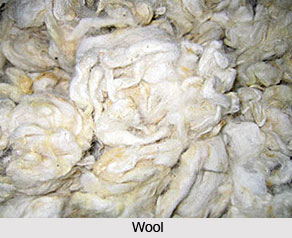 Rural cottage industries in Mughal India supported a major portion of the rural population apart from agriculture. It acted as one of the main sources of the economic development of that era. These small scale village industries not only helped in maintaining a distinguishable identity of Mughal period but also in the development of the trade markets. Cottage industries in Mughal India were carried on at home and that involved less number of people. The rural cottage industries mainly involved the work of traditional artisans and craftsmen. Those artisans have inherited the work as an art form from its previous generations. Silk, wool, cotton, muslin, etc. were some of the popular goods manufacture in village industries during Mughal rule.
Rural cottage industries in Mughal India supported a major portion of the rural population apart from agriculture. It acted as one of the main sources of the economic development of that era. These small scale village industries not only helped in maintaining a distinguishable identity of Mughal period but also in the development of the trade markets. Cottage industries in Mughal India were carried on at home and that involved less number of people. The rural cottage industries mainly involved the work of traditional artisans and craftsmen. Those artisans have inherited the work as an art form from its previous generations. Silk, wool, cotton, muslin, etc. were some of the popular goods manufacture in village industries during Mughal rule.
The various indigenous products of the rural cottage industries have attracted large number of foreign traders and merchants. Thus, with the help of these small scale industries the country had successfully established trade relations with the Greek, Chinese and Arab merchandisers. It is widely believed that in the medieval India, the country`s craftsmen and artisans flourished extensively under the rule of the Mughal dynasty. Indian hand-industries, chiefly textiles largely expanded in Mughal period. These industries provided economic opportunities to poorer peasants through employment. During the Mughal rule the production of handicrafts and other traditional goods increased as a result of expanding cottage industries. Thus, they helped in keeping up with the increasing trade demands from foreign countries. It is also said that the destruction of the rural cottage industries after the invasion of the British rulers constitutes one of the fiercest chapters in the economic history of the country.
This article is a stub. You can enrich by adding more information to it. Send your Write Up to content@indianetzone.com



















